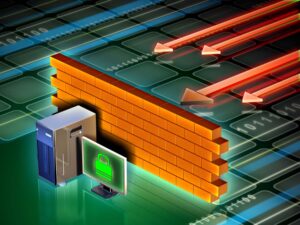Today I talk about what it means to perform a hardware refresh: the cyclical replacement of old, outdated hardware. Many organizations replace their hardware every three to five years, no matter what condition it is in.
Why would I throw away a perfectly good piece of functioning equipment?
I’m sure many of you are thinking this. Honestly, it depends on how your company uses its hardware and how critical a failure would be. If you are a company that is highly dependent on local horsepower (think CAD/graphic design), you need your computer to be as fast as you are. A failure could mean delays on a project, costing or delaying you a lot of money. Over time, the reliability of computer hardware becomes less certain. The hardware will eventually fail and have to be repaired, or replaced. Failures typically occur at the beginning of the product life, or many years later.
Speaking from experience, computer components (hard drives, in particular) are much more reliable today than they were ten years ago. System hardware failures are now fairly rare events. For those in the mindset of “use it till it breaks,” this can be a curse. There you are with a ten year-old computer that still works and runs the software that you need. What’s wrong with that?
When it finally does fail, you may be in big trouble.
Chances are, while you continued to use this computer, you probably didn’t update your software either. Now that your computer has failed, you have been told it either cannot be repaired, or that it is a waste of money to do so. So you get a new computer, just to find out your old accounting software will not run on it (QuickBooks users have been through this). Now you have to buy new software, as well. And… What is this new operating system? Your productivity drops while you learn the new software and operating system. Oh, and your old printer won’t even connect to your new computer. You have to get a new printer, as well. If you are lucky, you can find an adapter. And… There are no drivers for that scanner you’ve been using. It will have to be replaced. You get the idea…
Why wait till it fails?
If you replace your aging equipment in a timely, controlled manner, you can also control the learning curve. Get training on the new software while you continue to use the old. That way, when the time comes, you’ll be ready. Research the new hardware beforehand so you know what all will have to be replaced. Avoid breaking your budget having unexpected expenditures on computer hardware and software.
Okay, how do I know when to replace?
Typically, you should replace equipment at warranty expiration. This is typically three years. You should NEVER pay money to get a piece of computer hardware repaired. It just isn’t worth it as computers are now designed to be somewhat disposable. You can get a new business grade computer for $500 these days. If the repair costs $200, plus labor… you get the idea. Keep your computer hardware and software under a maintenance/managed services contract. Don’t forget that software failure can also cost you big money (think malware/viruses). These contracts can save you money when software failures occur.
What if I can’t afford to replace my computers every three years?
Of course, you can continue to run what you have. Eventually, you will still have to replace them. A recent example is Microsoft ending support for Windows XP. Now you risk running your computer without security updates. A very bad idea… However, if you do face a very expensive refresh and want to soften the blow, consider going to the Cloud. Instead of paying tens of thousands up front, you just pay a monthly fee. Your existing computers could effectively become “thin clients” (think dumb terminals) and can be used for much longer, without impact to your business. However, they will still need to be maintained. For a near-zero maintenance solution, you could replace your desktop computers with actual thin clients. In some cases, tablets will also do the job.
Thanks for reading.
Marcus Prater
Senior Network Engineer
Alliance InfoSystems
Managed Services

Blog
Business Firewall Setup Mistakes and How To Avoid Them
You’ve just noticed unusual traffic on your network. Your firewall



